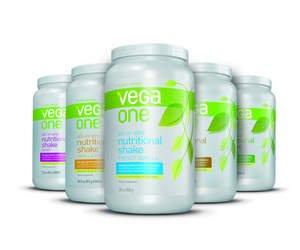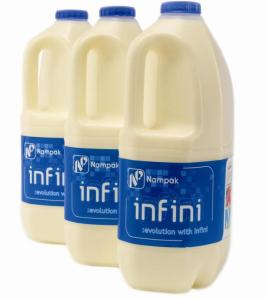Original Post By Annie Kane | Resource – Daily news and features for the waste to resources industry
Read the original article here: http://resource.co/article/recycled-plastics-markets-experiencing-unprecedented-challenges-9943 | 20 March 2015
Industry stakeholders are urgently calling on retailers to switch back to using recycled plastic packaging, as the market is currently experiencing ‘unprecedented challenges’.
The price of oil has dropped to under US$60 (£40) a barrel for the first time in five years, thus making the price of virgin plastic fall and leading some businesses to switch back from recycled polymers to virgin plastic. (As a result of this, and ‘operational challenges and unfavourable market conditions’, one plastic reprocessor, ECO Plastics – now known as ECOPlastics Recycling – sought acquisition last year following financial difficulties.)
As such, Rogerson called the meeting on Tuesday to discuss the market challenges and voice his support for recycled plastic packaging.
At the meeting, which included representatives of the packaging, dairy, resource management and reprocessing industries, stakeholders also committed to improve their recycling rates further under the voluntary Courtauld Commitment and the Dairy Roadmap, which commits dairy farmers to increase the recycled content in plastic milk bottles.
Rogerson commented: “The plastic packaging supply chain has worked very hard to increase the amount of packaging being recycled, with the full support of government.
“I welcome commitment from across the supply chain to deliver on the existing agreement. This week’s meeting makes clear our commitment to go even further, continuing to embrace new technology to make sure more recycled plastic is used throughout the supply chain.
“This industry-wide commitment to recycling is delivering real environmental benefits and also creating jobs, helping to build a stronger UK economy.”
Calls for an ‘urgent switch back to rHDPE’
Members of the waste and resources industry have welcomed Rogerson’s support, but have urgently called for retailers to ‘switch back’ to using recycled plastic to help protect the ‘vital UK recycling infrastructure’.
Ray Georgeson, Chief Executive of the Resource Association, a trade association for the reprocessing and recycling industries and their supply chain, commented: “Dan Rogerson’s intervention this week was timely and necessary, and we are grateful to him for his critical attention to the problems that plastics reprocessors are facing as a result of low oil prices and the switch back to virgin polymer by some of the major players in the supply chain.”
However, he warned: “The meeting heard many general messages of support for the continued use of recycled content in line with the commitments made under the Dairy Roadmap and Courtauld Commitment, facilitated by WRAP. However, these were not backed by specifics in the meeting and, frankly, warm words are not enough.
“We call on all the signatories of the Dairy Roadmap and Courtauld Commitment to honour their commitments to recycled content, but this now means more is needed than merely a general statement of intent – it needs an urgent switch back to specifying rHDPE [recycled high-density polyethylene] with immediate effect.”
Georgeson added that while there are “cost pressures” on all parts of the supply chain, reprocessors are “carrying the cost burden and most of the risk”.
As such, he said a long-term view is needed, and “a reminder of the sustainability commitments made by retailers and major brand owners is now necessary, along with this urgent appeal to take the long view, stand firm with the reprocessors, help them weather the storm and protect this vital UK recycling infrastructure for many years to come”.
He warned: “If we lose it for the sake of 0.1p on the cost of a standard plastic milk bottle, not only will it be a hole under the waterline for the voluntary approach taken by WRAP, government and the industry, it will make all the warm words about sustainability and the circular economy sound very hollow…. Surely 0.1p on the cost of a milk bottle is not a high price to pay for the sustainability of the UK rHDPE recycling infrastructure?”
Chair of the Resource Association Peter Clayson added that the body is “ready to assist the minister and industry in any further discussion that may be needed to accelerate this week’s important intervention by him to a level where urgent and positive decisions can be made by those who have them in their gift”.
‘Now is the time when action really counts’
Urgent calls for action have also been voiced by the Chief Executive of the Chartered Institution of Wastes Management (CIWM), Steve Lee, who said: “Global market conditions may be challenging at the current time, but it is essential that this progress is maintained and supported, and CIWM welcomes Defra’s strong statement to this effect today…
“However, now is the time when action really counts as the plastics markets experience unprecedented challenges. Ultimately, the imperative goes beyond simply meeting targets and legal obligations, it is about ‘tooling up’ to ensure that the UK directly reaps the environmental and economic benefits of recycling and resource efficiency.
“It is also about delivering a very positive message to consumers that their recycling efforts are making a difference here at home. Seeing recycling at work in the form of products and packaging with recycled content on the supermarket shelf provides a tangible everyday example that helps encourage behaviour change and drive greater participation in recycling.”
Industry backing
Members of the food and drink industries, as well as packaging bodies, have supported the calls for more commitment, with Andrew Opie, Director of Food and Sustainability at the British Retail Consortium (BRC), saying: “We are aware of difficulties in the plastics recycling industry and are supportive of the principles of recycled content in packaging and products.
“Our members are signed up to a number of commitments in this area and will continue to work towards them, but recognise that this is a difficult market and greater attention needs to be paid to the long-term sustainability of the UK recycling industry.”
Dr Judith Bryans, CEO of Dairy UK, added: “Under the Dairy Roadmap, dairy companies have worked hard to achieve the target of 30 per cent recycled material in HDPE milk bottles by 2015. There will be further progress in the future.
“As an industry, we have a clear understanding of the important role of the plastic recycling sector in allowing us to meet these ambitious targets and help secure a sustainable future for the UK dairy industry.”
Find out more about the problems facing the plastics industry or learn more about the Courtauld Commitment and Dairy Roadmap.





